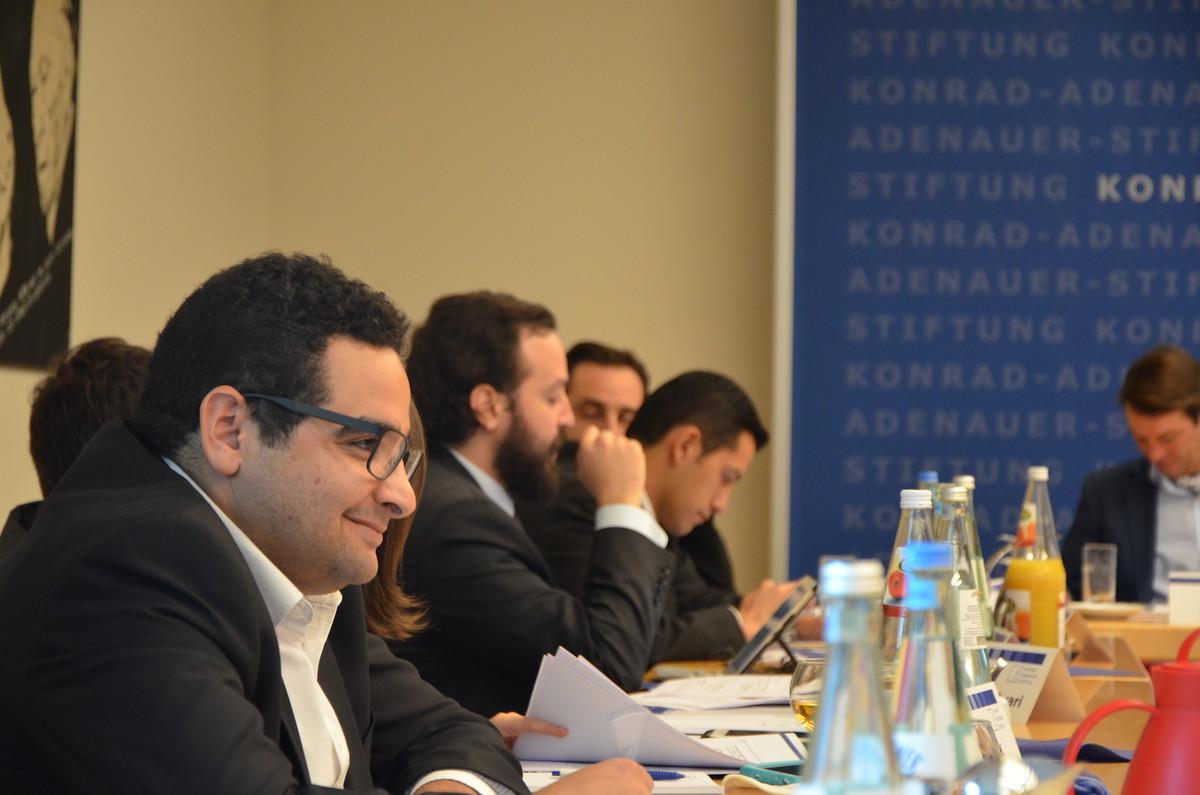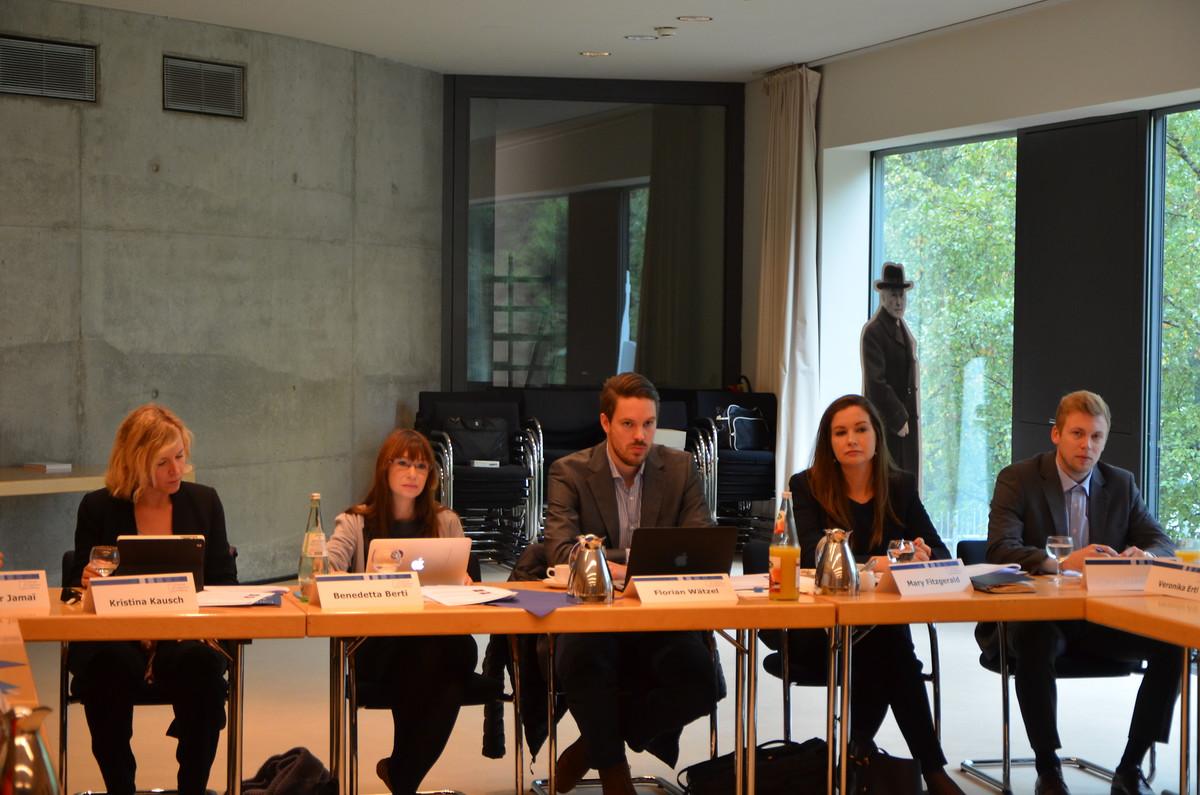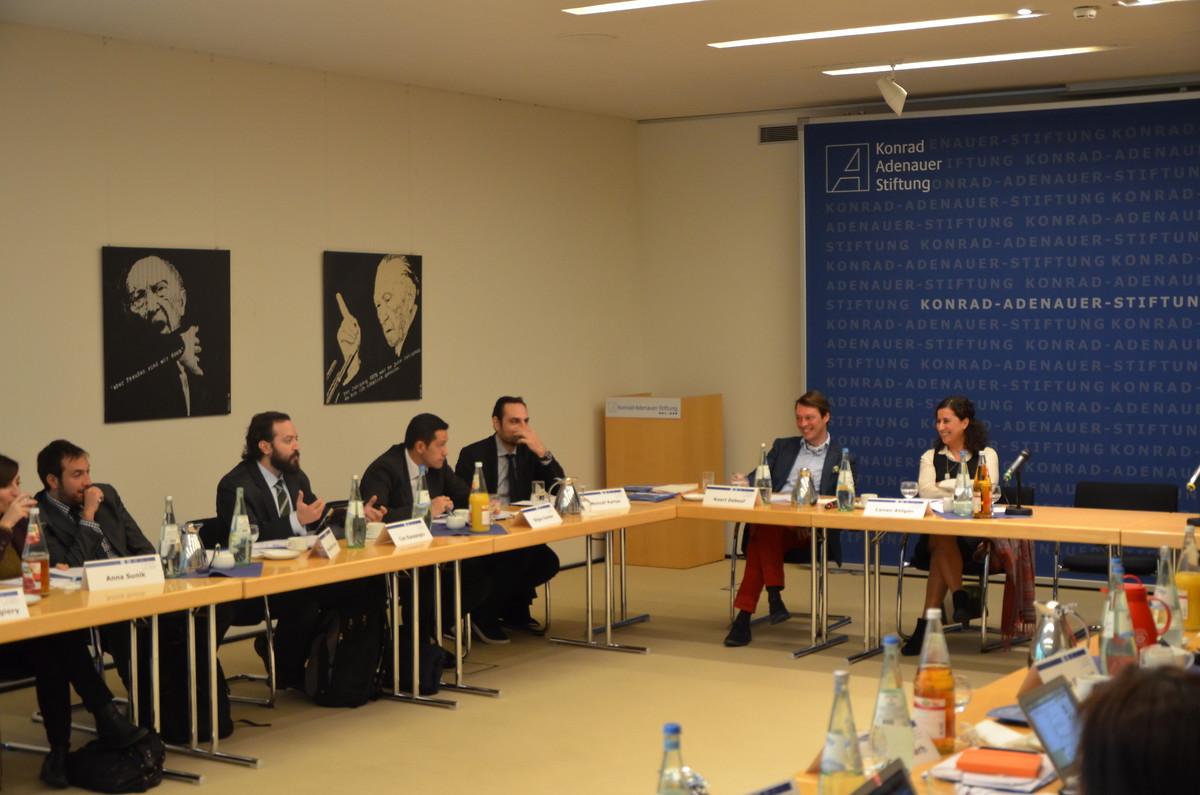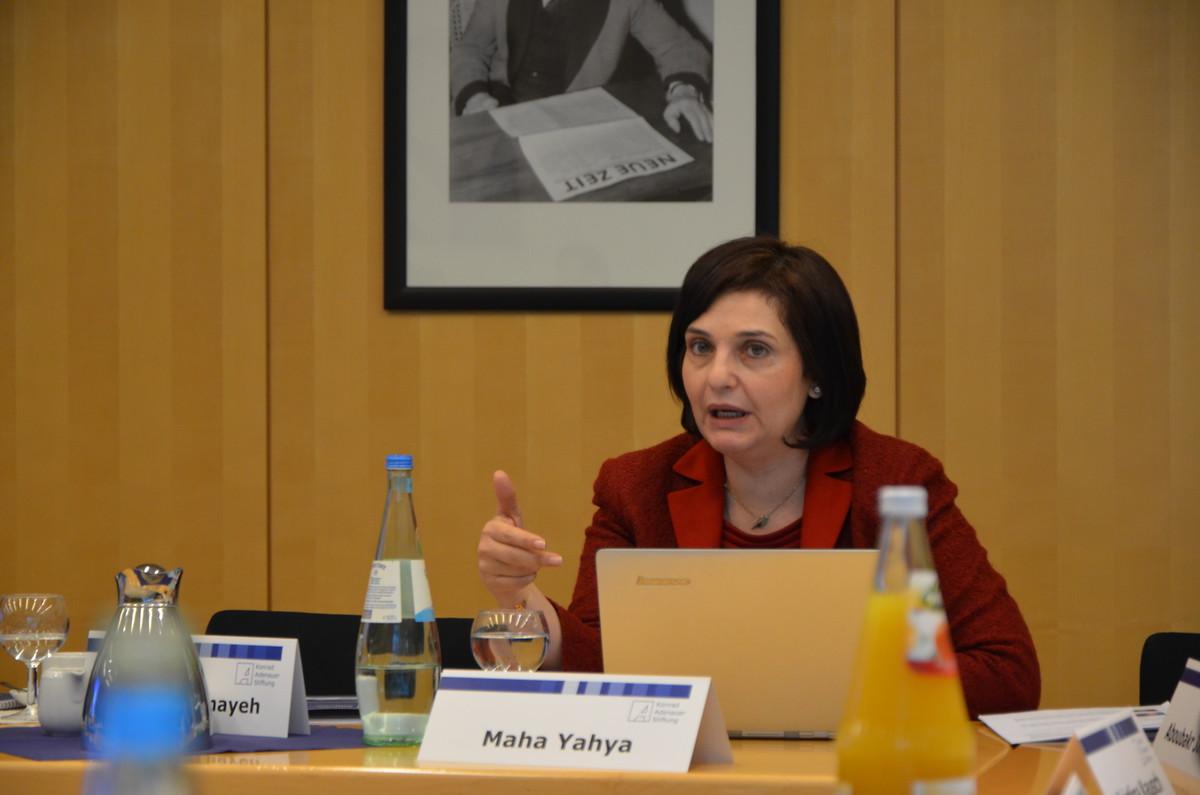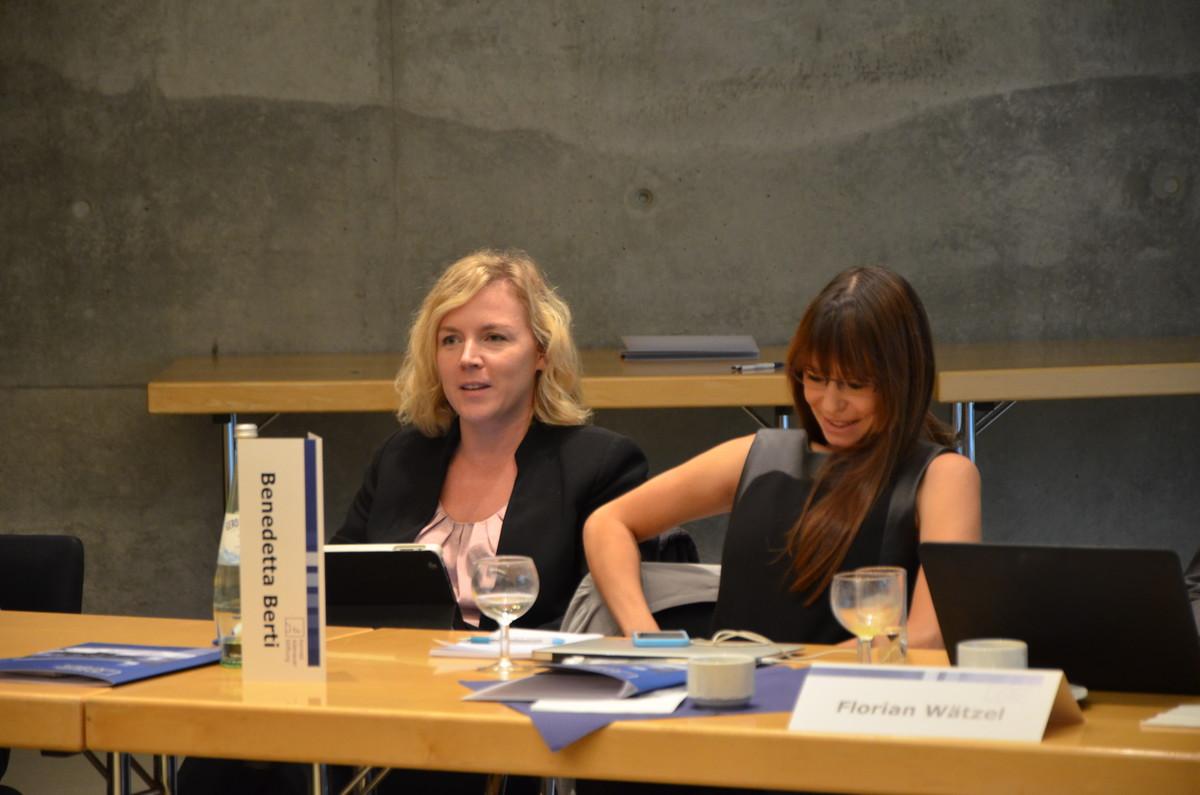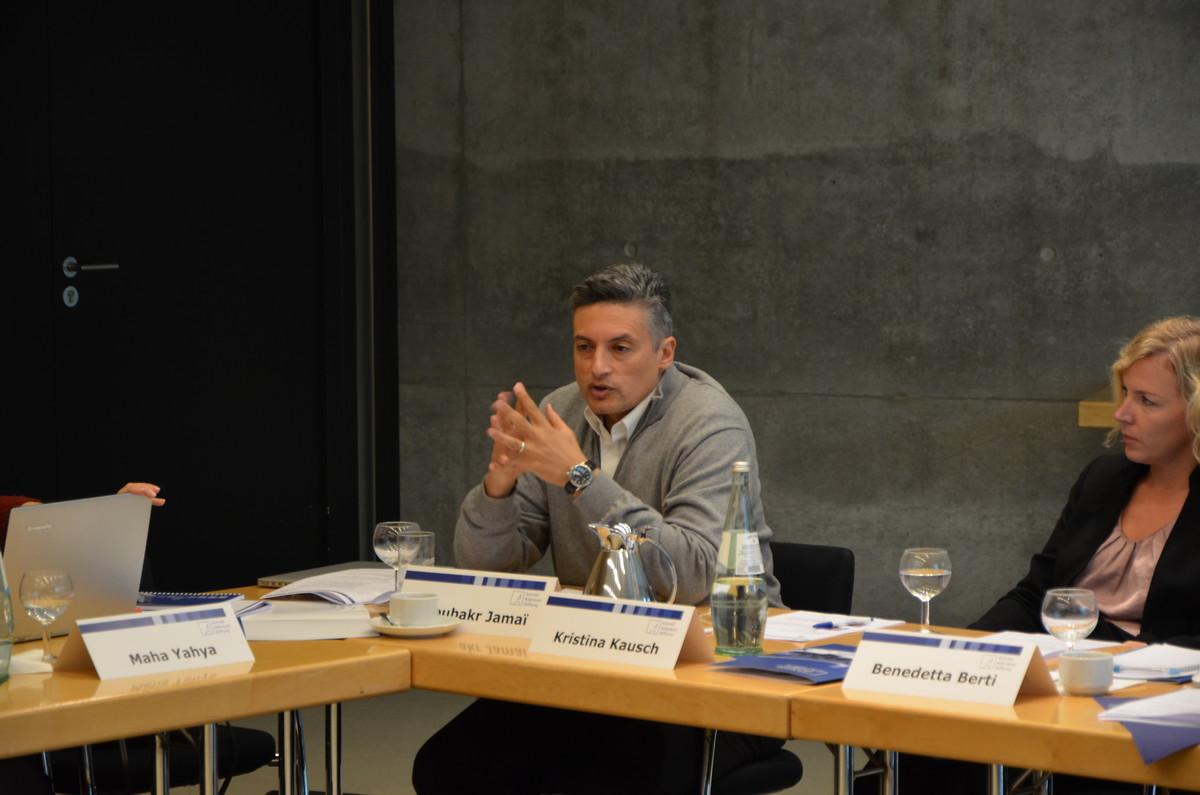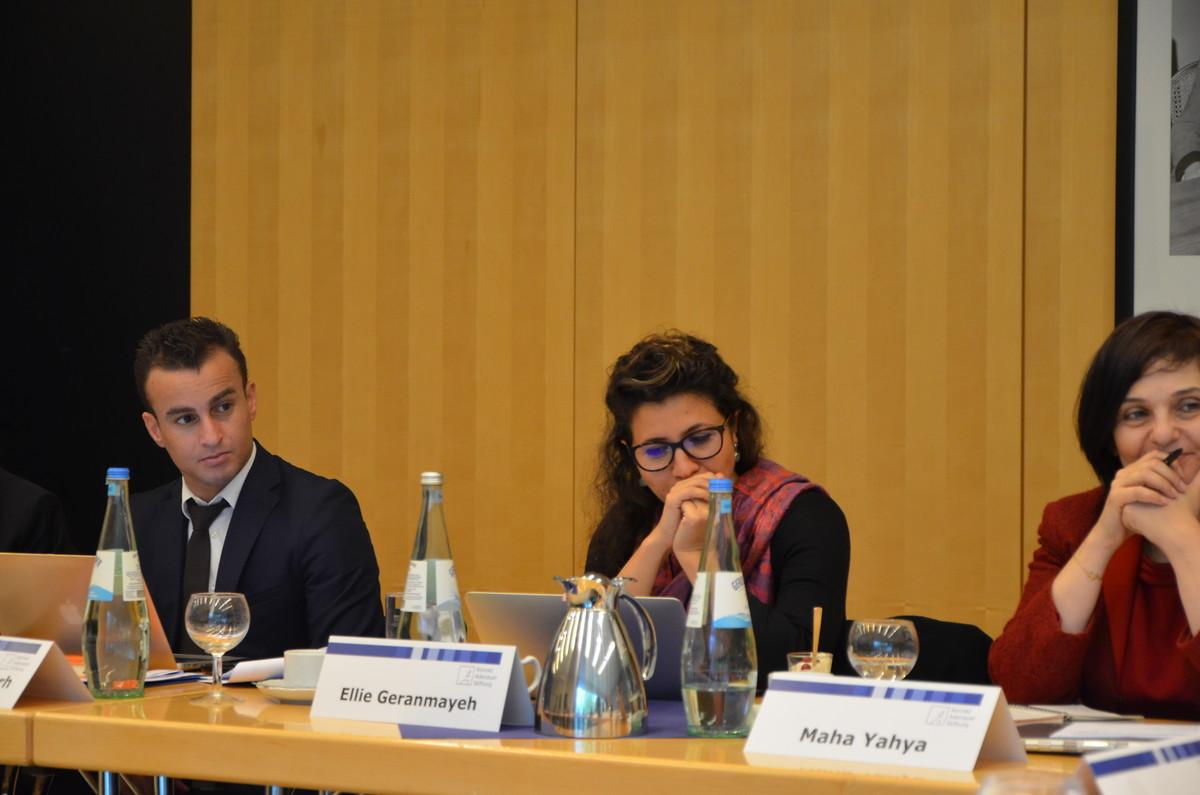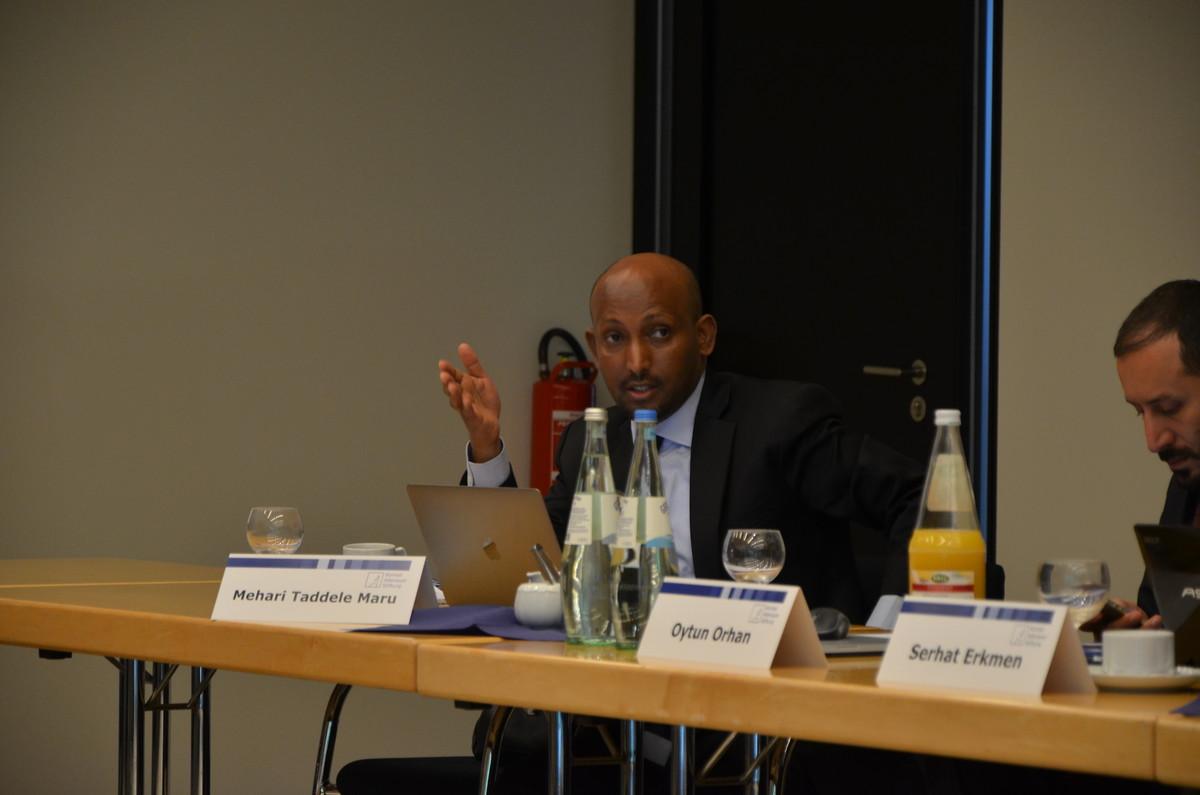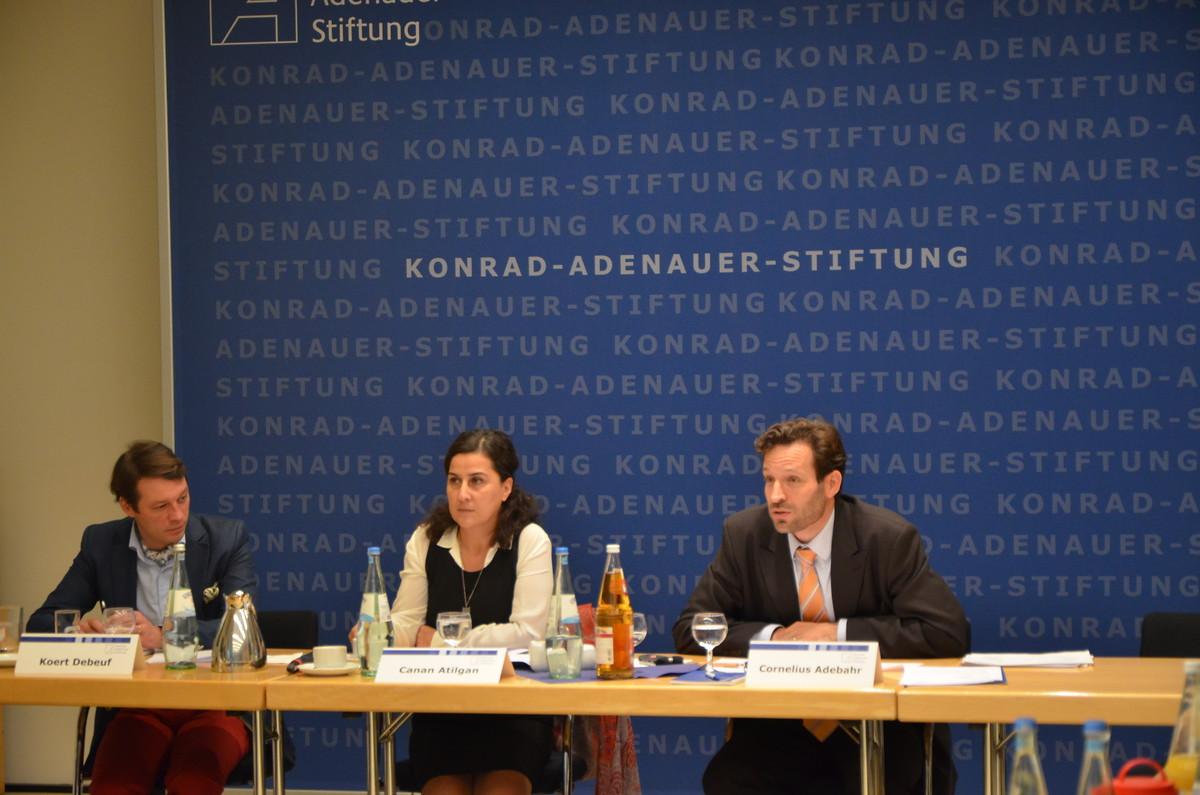Event reports
Arab states today face a situation in which their weak institutions are besieged by a myriad of newly empowered non-state actors. Spanning across widely diverse groupings, from peaceful political and social grassroots movements to violent extremists, non-state actors put pressure on the flawed Arab state by demanding accountability, justice, revolutionary change. To gain deeper insight into these dynamics, the KAS Regional Program Political Dialogue South Mediterranean invited renowned international experts for a conference on 18 October 2016 in Berlin on the growing importance of non-state actors in the countries of the Southern Mediterranean. The conference was designed to facilitate the exchange between these experts and aimed at a broad conceptualization of the wide range of non-state actors that challenge the fundaments of Arab states by peaceful or violent means. It examined the power of non-violent groupings based on kin, religion, political affiliation or social demands, as well as the broader influence of violent groups as combatant adversary of states. Finally, it analyzed different responses of states to the rise of their non-state challengers, and how these influence the prospects for lasting security in the Middle East and North Africa. The conference furthermore aimed to lay the foundation for a network of experts and further exchange on relevant regional issues.
The conference was opened by introductory words by Thomas Birringer, Head of the Middle East and North Africa Department of the Konrad Adenauer Foundation and Dr. Canan Atilgan, Director of the KAS Regional Program South Mediterranean. Both of them stressed the importance of a closer analysis of non-state actors in the Arab world since states have always tried to monopolize and occupy all spheres and are now forced to find ways to react to the growing influence of non-state actors – an influence that in many instances undermines their power and legitimacy.
The first panel of the day revolved around kinship, religious and civil groupings. It featured contributions on the role of tribes and clans in Libya’s history and current peace process as powerful example of the influence traditional kinship-based governance structures can exert, particularly in the context of weak state institutions and lack of social safety nets, as well as highlighted sectarian affiliations as key to local loyalties in the war in Syria. Furthermore, it looked at regional identity politics, systemic discrimination between regions and the cleavages this has created in Tunisia after the revolution as well as Lebanese civil grassroots movements that succeeded to mobilize big numbers of citizens. In the latter example, a movement that started around a very specific issue – the garbage crisis – developed into something bigger that managed to bring together people from widely different backgrounds without the involvement of established political parties.
The following panel then turned to the strategies of violent and extremist groups that increasingly challenge the control of states over their territories. The presentations highlighted the project of territorial expansion of ISIS and the role of militant insurgents in the Sahel region as examples of groups that aim to increasingly wrestle territories out of the control of the respective states with the ultimate goal of weakening the central authority and controlling their own territorial entity. The case of armed militias in Libya put the spotlight on the role armed non-state actors can take over in the absence of functioning state institutions and a centralized military force. The ongoing power struggle and the resulting “hyper-regionalization” in Libya, with a myriad of militias acting as security forces and unwilling to cede any of their power, present major obstacles to the establishment of a centralized commando structure or even a state monopoly on the use of force. Finally, Hezbollah was discussed as paradigmatic case of a non-state actor that has not only created a “state within the state” by substituting for a lack of governance services from the state, but over the last years has evolved towards a more regional but also more internally divided organization through its involvement in the war in Syria and the changes this triggered in the organization’s self-perception and ideological discourse.
The third panel then turned towards the responses of the states faced with non-state actors. The responses range on a wide spectrum from war over repression and co-optation to patronage and are carried out on a national, regional and international scale. Morocco and Egypt were presented as two examples of states that have chosen different strategies of coping with the challenge of non-state actors. While the Moroccan monarchy uses the moderate and co-opted opposition groups to occupy the space of public opinion in order to block more virulent opposition, Egypt has experienced a severe crackdown on civil society in the aftermath of the revolution under its military government that exploits divisions within the civil society in order to consolidate its own political and economic power. Another presentation discussed regional military efforts to fight ISIS by helping states to regain control over their territories and air spaces through the help of international coalitions. The fourth contribution focused on states that have entered a new experimental phase in their relation with non-state actors in which they seek to utilize the power of non-state actors as proxies to drive forward their own geopolitical agenda. Examples for this are the conflicts in Syria and Yemen in which states have used their support for non-state actors to influence the conflict trajectories.
In the concluding panel, the focus was then extended to take into account EU and US’ responses to the rise of non-state actors and to explore potentials for transatlantic cooperation in this context.
The conference was followed by a dinner with MP Roderich Kiesewetter, Foreign Affairs Representative of the Christian Democratic Union and Christian Social Union Parliamentary Group in the German Bundestag. During the dinner, the participants of the conference engaged in a vibrant discussion over topics related to non-state actors in the Mediterranean region but also Germany’s role in the refugee crisis, differences between development approaches of EU member states and the role of international actors in the Libyan power struggle.
About this series
The Konrad-Adenauer-Stiftung, its educational institutions, centres and foreign offices, offer several thousand events on various subjects each year. We provide up to date and exclusive reports on selected conferences, events and symposia at www.kas.de. In addition to a summary of the contents, you can also find additional material such as pictures, speeches, videos or audio clips.
Order details
erscheinungsort
Tunisia Tunisia
No clear winner in the parliamentary elections in Kosovo: Forming a government will be complicated
Regime Change in Syria
Canada Faces the Threat of a Trade War with the USA in the Election Year!
Albania and religion – a globally unique case
From Paralysis to Progress? Who will be the new face of the African Union?



